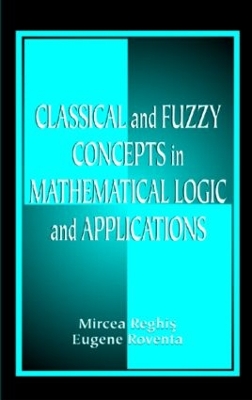Classical and Fuzzy Concepts in Mathematical Logic and Applications provides a broad, thorough coverage of the fundamentals of two-valued logic, multivalued logic, and fuzzy logic.
Exploring the parallels between classical and fuzzy mathematical logic, the book examines the use of logic in computer science, addresses questions in automatic deduction, and describes efficient computer implementation of proof techniques.
Specific issues discussed include:Propositional and predicate logic
Logic networks
Logic programming
Proof of correctness
Semantics
Syntax
Completenesss
Non-contradiction
Theorems of Herbrand and Kalman
The authors consider that the teaching of logic for computer science is biased by the absence of motivations, comments, relevant and convincing examples, graphic aids, and the use of color to distinguish language and metalanguage. Classical and Fuzzy Concepts in Mathematical Logic and Applications discusses how the presence of these facts trigger a stirring, decisive insight into the understanding process. This view shapes this work, reflecting the authors' subjective balance between the scientific and pedagogic components of the textbook.
Usually, problems in logic lack relevance, creating a gap between classroom learning and applications to real-life problems. The book includes a variety of application-oriented problems at the end of almost every section, including programming problems in PROLOG III. With the possibility of carrying out proofs with PROLOG III and other software packages, readers will gain a first-hand experience and thus a deeper understanding of the idea of formal proof.
- ISBN10 0849331978
- ISBN13 9780849331978
- Publish Date 20 May 1998
- Publish Status Active
- Publish Country US
- Publisher Taylor & Francis Inc
- Imprint CRC Press Inc
- Format Hardcover
- Pages 378
- Language English
